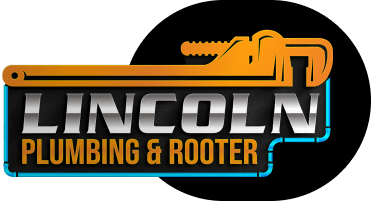Southern California is no stranger to hard water. The minerals in our water supply—mainly calcium and magnesium—may be harmless to drink, but they’re not so kind to your plumbing. Over time, hard water buildup can lead to poor water pressure, stained fixtures, and costly plumbing repairs.
At Lincoln Plumbing & Rooter, we help homeowners protect their pipes and plumbing systems from the long-term effects of hard water. Here’s how to spot the signs, prevent damage, and keep your plumbing system running efficiently.
What Is Hard Water?
Hard water contains a high concentration of dissolved minerals, especially calcium and magnesium. These minerals aren’t harmful to your health, but they do leave behind a trail of damage in your plumbing system.
Southern California’s municipal water supply is considered moderately to very hard, depending on your location. That means homeowners across the region are likely to deal with the side effects—whether they realize it or not.
Signs of Hard Water in Your Home
Not sure if hard water is affecting your plumbing? Here are a few red flags to watch for:
- Low water pressure: Mineral buildup inside pipes restricts water flow.
- White, chalky residue: Often seen on faucets, showerheads, and dishes.
- Frequent clogs or slow drains: Especially in homes with older galvanized piping.
- Reduced lifespan of appliances: Dishwashers, washing machines, and water heaters suffer from scale buildup.
- Spotty glasses or soap scum: Hard water doesn’t rinse away soap or detergent effectively.
These issues don’t just affect comfort—they increase your utility bills and maintenance costs over time.
How Hard Water Damages Your Plumbing
Hard water leads to a process known as scaling, where minerals adhere to the inside of your pipes, fixtures, and appliances. Over time, this:
- Narrows the diameter of your pipes, reducing water pressure
- Makes hot water appliances work harder (and burn out faster)
- Increases the risk of leaks due to corrosion or cracked fittings
- Shortens the life of plumbing fixtures and appliances
Left untreated, hard water can turn minor annoyances into major repairs.
What You Can Do About It
There are several ways to protect your plumbing system from the effects of hard water:
1. Install a Water Softener
A whole-house water softener removes excess minerals before they enter your plumbing system. It’s the most effective long-term solution for households with moderate to severe hard water.
2. Schedule Routine Plumbing Maintenance
Mineral buildup doesn’t happen overnight, but regular inspections from Lincoln Plumbing & Rooter can catch early signs of trouble. We check for scale buildup, flow issues, and signs of wear in your pipes and fixtures.
3. Flush Your Water Heater Annually
Hot water accelerates scale buildup. Flushing your water heater once a year helps remove sediment and extends the unit’s lifespan—especially in hard water areas.
4. Use Faucet and Showerhead Filters
These point-of-use filters won’t solve hard water issues entirely, but they can reduce visible mineral deposits and improve water quality in problem areas.
Don’t Let Hard Water Ruin Your Plumbing
Hard water may be a fact of life in Southern California, but damage to your plumbing doesn’t have to be. At Lincoln Plumbing & Rooter, we offer expert diagnostics, maintenance, and solutions to help you fight back—whether that means installing a softener or simply tuning up your system.
Call Lincoln Plumbing & Rooter at (909) 780-0887 today to schedule a plumbing inspection and get professional advice tailored to your home. Clean, reliable water—and long-lasting pipes—start here.



